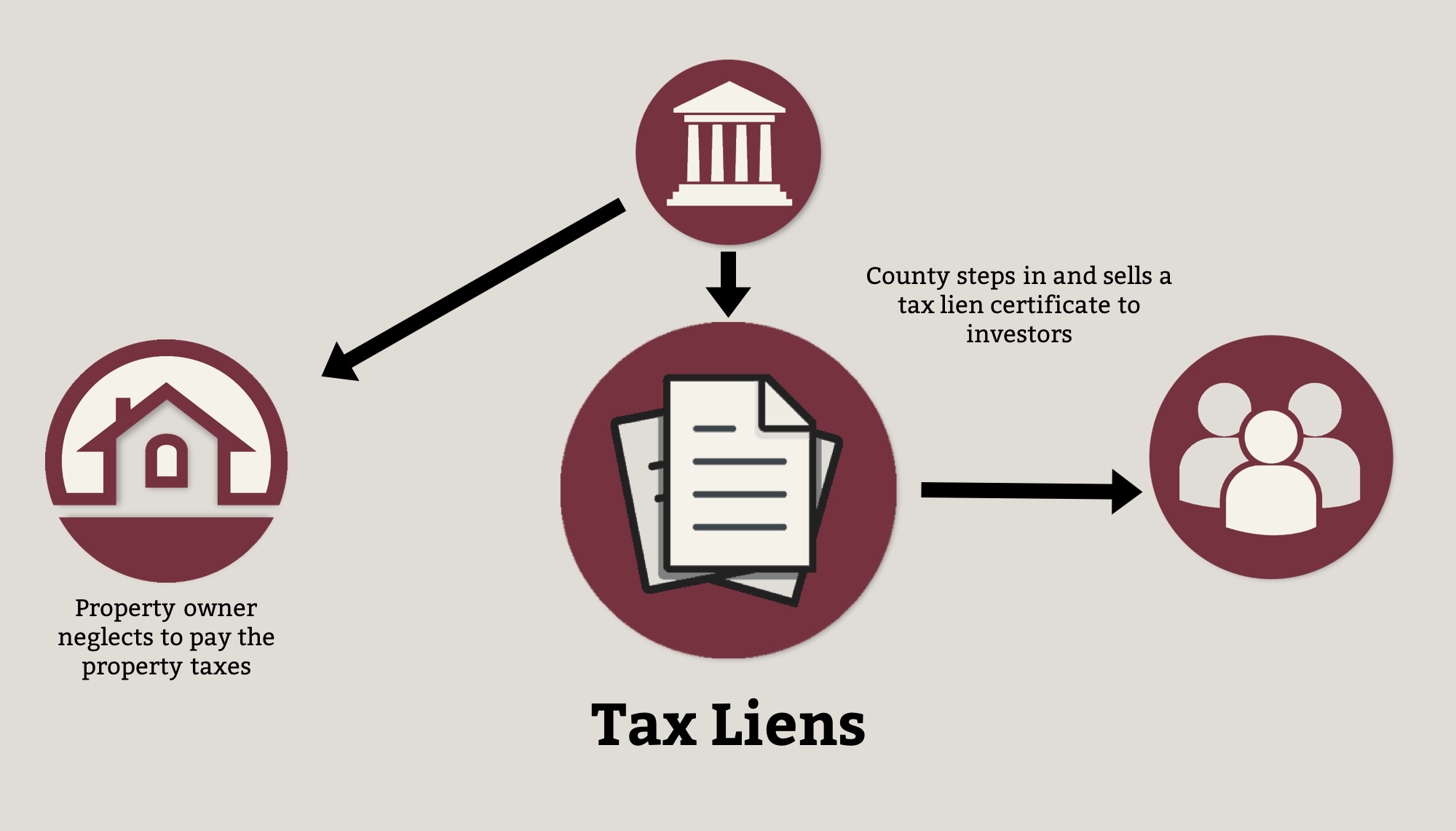Tax Liens: An Overview
By Jordan Sheppherd

Clients often ask us, “Should I invest in tax liens? My brother-in-law says you can get 25% return!” Before discussing whether the investment is a right fit, it is best to make sure that the boundaries of what a tax lien is (and isn’t) are set.
The official definition of a tax lien (often called a tax lien certificate) is a lien imposed by law upon a property to secure the payment of taxes. A tax lien may be imposed for delinquent taxes owed on real property or personal property, or as a result of failure to pay income taxes or other taxes. (Wikipedia)

This translates to the following scenario (as illustrated above): Property owner Joe neglects to pay the property taxes on his three-bedroom home. The county, in need of the funds and unwilling to deal with the hassle of foreclosure instead steps in and sells a tax lien certificate (holds a tax lien certificate sale) to buyers (a.k.a. investors). The tax lien certificate guarantees their original investment back (the tax bill) plus an interest rate (rate of return) and in some states, such as New Jersey, penalties for nonpayment as well. Since the tax lien is sold by bidding, the interest rate decreases with each bid.
Tax liens can vary from an average annual amount of $2K-$8K to more than $100,000 if the property is commercial. This can tie up cashflow as well as require a long-term investment strategy as most tax lien certificates take several years to pay off.
If the property goes into default or foreclosure, all other prior debts and obligations on the property are wiped clean. Tax liens take priority over everything else. Although this can technically lead to you owning the property, most tax liens do not end in foreclosure; approximately 1% (according to Forbes).
Tax liens can be a profitable investment if handled correctly. For a more in depth discussion regarding how to invest in tax liens, read this follow-up article: Tax Liens: Making it Work!


0 Comments